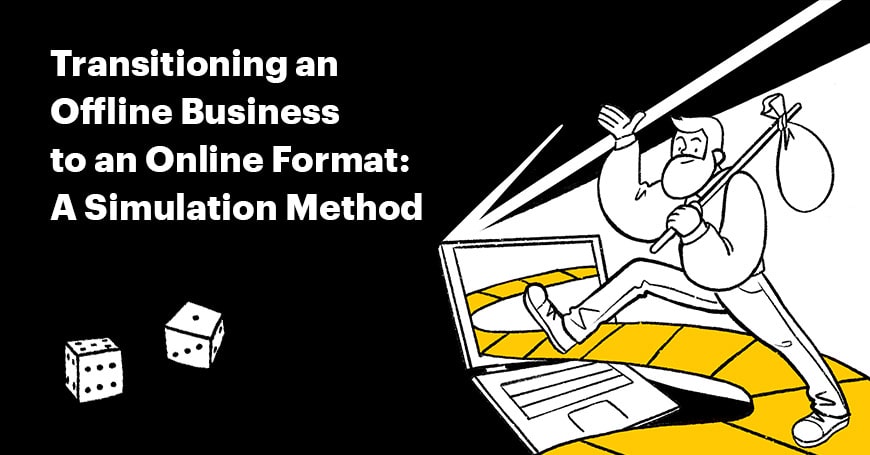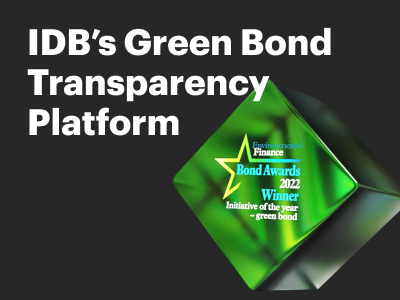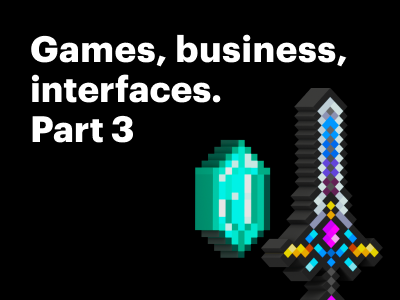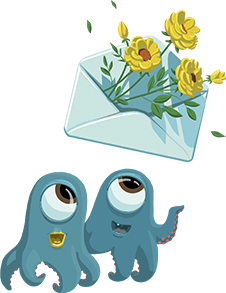27 May 2020
New Article: Transitioning an Offline Business to an Online Format: A Simulation Method
With the recent Coronavirus outbreak and the lockdown policy around the world, we all realised that traditional businesses like catering, education, events, tourism, and many others are unable to function as they used to. And it’s about time to start thinking about how to remodel your business from offline to online.
Our CEO Alexey Kulakov has shared a Business Simulation Method that you can try yourself. Read about it in our new blog post!
These are key thoughts from his interview on how to transition your offline business online and what questions to ask yourself to successfully reassemble a business or product.

Why is it necessary to talk about how to transition a business online? On one hand, the current situation is pushing businesses to transition online. In times of crisis, people are looking for unconventional solutions and new approaches. On the other hand, this question is usually asked in the context of the tool: "What service to choose to ..." But during this transition, it's not enough just to find a suitable tool for chats and online broadcasts, or, for example, to draw on a common board. It's necessary to understand the work structure and reproduce its effects in a new environment.
The mistakes people make during normal times hit differently during this transition. So there's an excuse to talk about what questions are worth asking yourself concerning the business and/or product you are creating, and what approach will help you reassemble your business or product online.
Business Simulation Method
For a long time, I've believed that every entrepreneur should take a simulation course. In my case, simulation is part of a tradition I've transferred from my experience in games creation (practical, live art, board, computer games).
From an RPG master’s point of view, the company's model (or any other social structure) has one important quality - it's a living dynamic system that increases the amount of energy within itself. This is not a definition, but a requirement - we must make it "alive" and, to put it simply, make sure it survives. This is important in games because when you make a game and then players play it, the world has to respond to their actions, they have to get a reaction. In a game, we can't afford to have scripts and instructions for each player. The players have their own motives, they’re free to play and we can't control them with the manager's will or strict instructions for each case. We have to make the system live and so we have to imagine how it behaves dynamically, invent means of indirect control, spread motivation, problems, and forms of interaction throughout the game. To understand and handle this, we have to learn to see the structure of events, learn to design and control the game model.
What about business? On the one hand, a company usually seeks to control all significant actions of each employee. But on the other hand, it's desirable that employees made their actions within certain rules, that people become subjects and act of their own accord and for the sake of their goals, and that they share these goals with the company. There's a conflict: on the one hand, you need the control (to scale up and reduce costs), on the other hand, you need the subjectivity(to develop, to cultivate leaders, to create new things and adapt).
When I plan out relationships in a company, I do the same thing as when creating a game - I invent rules that give people in a free play "game" the results useful to the system. And this activity will be voluntary, interesting, and ultimately increase the energy of the system. That is, the rules of the game will make sure everyone's free play increases the viability of the company. I'm using simulation to do that.
I've been thinking for a long time about how to explain the way to use this skill to people so when trying to implement it, it would be difficult to fake the activity (to pretend we are doing something practical, not actually doing anything). The easiest option I found was to create a simulation by describing exactly what people are doing. So, we're not talking about different metrics, tools, and KPI, but about people's experiences and scenarios.
Simply put: what kind of people there are, what they're doing, and what for. What is the quality of these people's work? What do they experience? What kind of feelings do they have? This is especially important concerning marketing because people don't buy anything other than hope for experience or guarantee of experience. Life is the only adventure that happens to us, and all we can technically discover in it is our experience. All our conscious actions are designed to change it in some way. So, when I describe the business model for sales, I focus on what experiences we promise, and how people perceive them before, during, and after.
When we buy something, we hope our lives will change. We don't buy anything except that hope.
Let's try to describe the systems of different offline businesses as systems of experiencing actions.
Simulating Online Catering
Why am I going to a cafe? It's not just about eating. Let's look at the whole script.
For example, my friends are back in town, we haven't seen each other for a while, and I think: “I should meet my friends." Next, we choose where to go. We don't talk about it out loud, but we figure we're going somewhere to feel more like friends. What for? We want to experience this feeling: we haven't seen each other for a long time; we feel at ease together, we can share dumb stories... Also, the food will be delicious, and the place will be quiet, or vice versa, it will be noisy if we choose a place to suit another mood. But when the institution solves the problem of going online, as it is now, it has to do just delivery. And that won't give us, the customers, the emotions we want to go there for.
What can we do to provide people with the emotions they went to the café for? For example, we can deliver the same set of food to different people so it's as if they’re sitting together and eating the same food. Would that work? That's unlikely. I don't think we're gonna feel the same warmth from each other. We need some kind of mutual activity or at least a conversation starter. To feel something close to: "We are together, we have our own space, we feel comfortable in it." And then there are the nuances. We need a reason and a format for communication.
The barrier in the case of food delivery is that nothing creates an atmosphere for communication. Could it be part of the service? At the moment when we found the barrier that prevents the creation of the desired experience, it's already clear what needs to be done, what inventive task to solve, what hypothesis to create.
For example, you can make a set of food and a film to go with it, just how wine is selected for the appetizer. If it's a romantic night, then it’s one set of food and a rom-com; and if you want to have fun, then different food and a different movie. Plus a set of questions to warm up (assuming people don't always know how to start the evening). Or even a party game script. Would that work? Would it increase sales? We don't know yet and we won't know until we try it, but maybe it’ll give people the emotions they went to the cafe for.
Then this service will have a different customer than just delivery, and you can charge more money for this. This is an excuse to partner up with other services, choose other distribution channels, and there will be something to write about in the media because this isn't just another food delivery service.
Just in case - I'm not trying to say people go to the cafes just for this or that "just delivery" isn't important. I think you know better than I do why people go to your place if you're a cafe owner. All I'm saying is if you understand what emotions people get from an offline experience, you can give them a similar online experience – all by changing the business structure.
However, there’s a risk: after such an operation, you can find out that we are doing completely different business. To provide people with what they used to give us money for in a new environment, we have to do other activities. And it may turn out we're not as good at the new activity and this is a job for completely different people and companies.
Therefore, the goal is to find changes in the area of the nearest development for the business.
We were good at something, but it stopped working, so to continue living in a new environment, we need to understand what skills we need for our business to remain in demand.
One step may be enough to give us the necessary adjustment, and then we can go further on this path.
Of course, we can't redefine every business using this way. Some stories can't be redefined, for example, oil production can't be moved online in any way. In this respect, there are limits to this method. But catering isn’t the only area that can be redefined through a simulation of actions and experiences.
Simulating online education
If we apply this method to education, we will discover some terrible things. For example, the experiences people had offline are not the experiences we want to reproduce.
Let's look at the lesson system. Let's answer this question honestly: what emotions do students feel when they're sitting at a lesson? "Oh, the teacher isn't talking right now, and I have this great game on my phone." And there's a whole range of emotions about the way we do something interesting instead of listening to the teacher. And there's also "I wish the teacher wouldn't call on me" and so on. Most of the emotions offline education creates are not the emotions we want to transfer to a new environment.
The point of business and any activity, in general, is people change the way they want to because they won't pay for anything else.
This convention isn't so obvious with education because it's not exactly voluntary. If the one who pays isn't the one who participates, then we have to change the life not of the student, but the client. And if it's involuntary, everything starts to bulge at the seams. Besides, state universities and schools are connected with money by what the ministry thinks and not parents and children. In that regard, the method I'm talking about is only market-based - when you want to change the behavior of a client, that is, the one who gives you money.
But let's go back to the emotions we want to reproduce from education. For example:
-
"I can do it! I learned the cool thing."
-
"This thing I can do now should make my parents and friends proud."
-
"I found this interesting topic, and now I want to learn more about it."
Let's ask ourselves the following question: how can you recreate this experience? Let's take something more vivid than classroom education, something that has the chance to be a target experience - like hackathons.
A poorly organized hackathon looks like this: "Guys, here are your average prizes, there's some pizza (it's a good factor, by the way), you have a day, at the end of the day you go on stage, we will choose one of you and give an award. By the way, the choice will be made by an incompetent jury." And that's it, we kind of organized a hackathon.
But there are also good hackathons when the organizers want people to experience the following emotions:
-
"I came alone, but now I have a cool team with other people like me in it."
-
"Wow, people see me as an actual person and respect me for who I am."
It's not hard to replicate this online, it's just a lot of work.
Say, if I want a person to understand that they're noticed by awesome people, I have to make them really notice that person. For example, they would call them and say: "Hi, I read your application form, you have some cool unique thoughts there. So I know three other people who are similar to you, and I want to give you all a trial mission." That way, the participant will understand they've been noticed, they're important and will experience target emotions.
But to do that, we're going to do some hard work:
-
to learn to give praise,
-
to ensure the participants have an opportunity to write down their own thoughts,
-
read them
-
and see what you think about their thoughts.
So we have to treat them like adults - and that's exactly what they want.
We need to create an experience where people learn something new and get recognized for their accomplishments. To do this, we need activities that will be perceived as valuable. It may turn out that someone needs the results of this activity, that it's not just an educational activity, that someone will use it in real life. This means we need to include educational tasks in practical tasks, we need to find the source of this practice, i.e. we need to find partners who won't just give you money, but will say: "We have this particular research task, we're ready to spend our time and energy on you."
As a result, participants will be motivated for activity and a form of action. And then we can lay it out in more detail:
-
to write a program using Python, you have to learn how to use it first;
-
you have to use methods of mathematical statistics, so you have to understand mathematical statistics,
-
and so on.
In this regard, the hackathon participants need to be given tips & tricks like: "This is how you can hack this task."
These things I’m telling you are from a conversation about one hackathon. I helped the NTI Club Movement and these are people who are very good at making offline hackathons and have redefined them online.
On April 18-19, the NTI Club Movement held its online hackathon as part of Local Hack Day 2020. Participants were given the task to develop projects in two days to help solve the problems caused by the current pandemic.
Results are: 582 were registered, 234 passed at least one checkpoint and 155 participants presented their project. Winners included: a game that introduces participants to quarantine behavior rules; a nucleotide analysis project that found a relationship between SARS-CoV-2 and SARS and MERS viruses; and a coronavirus fact-checking model with a 65.8% accuracy.
Simulating online events
It's believed that some formats can't be transferred online, like a conference cocktail party. But let's think about it: how do you feel when you meet a person at a cocktail party who you haven't seen for a long time? "We're together", "they're happy to see me", "they find me interesting", "someone cares about my life" and, also, "I care about their life".
Small talk at a cocktail party is a way to experience an emotion, not an opportunity to exchange information or eat a canapé. So, if we're thinking about how to transfer this format online, we need to make the participant feel the other person is genuinely interested in them right now, that they support each other. Online is a good way to experience it.
When we communicate with someone online, of course, we don't hug, but we feel the interest of the other person and quickly get feedback from them.
And if we're doing an online event, we need to ensure people have:
-
the ability to communicate face to face (or in small groups of 3-4 people, otherwise there will be no intimate space),
-
time for that,
-
a reason for that,
-
a form of activity for that.
And we need to come up with that for them.
For instance, I like to do this: we divide people into chat rooms in advance on some principle (depending on the purpose: either we put you with strangers for networking, or with a team of old friends, so you can experience the emotion of "oh,long time no see"). There is a speaker, they make a speech, but not a very long one, and everyone listens to them while sitting in their chat rooms. Everybody has a task to somehow relate to what has been said. You listen to the speaker and know that after they're finished, you'll have five minutes to talk in your chat room, and then your chat room has to say something in the public space about the speech.
Bottom line:
-
we made the participants listen,
-
the speaker got more attention which means a lot of good questions,
-
people got an excuse and time for communication - they had a certain deadline and the result of their communication was in demand.
And if this speaker chooses the top 3 questions, the result will also be assessed so there is a reason to make it better.
None of this is tricky. I do the same thing offline, but online it's all achievable too. And, mind you, only at this point it's time to think about the technical aspects of the event because only now we understand what we need.
Simulating online tourism
This is, obviously, an advanced task. Alas, tourism is struggling right now. If we start analyzing, we will find out that we can give similar experiences, but the business will be different - it will be built on other things. And you can't actually give identical experiences because only the mountains can be better than the mountains. But let's try to do something.
Let's take a classic tour - we go somewhere as a family to clear our minds, to feel like we have no care in the world, there's stuff to do, there's an interesting program, children are also busy with something. There's the sea you can dive in. The sea, of course, will be hardest to reproduce now - it's a physically different environment, and in general there are a lot of tangible things in tourism, and it's definitely difficult to reproduce at a distance. However, it becomes clear it's actually possible to do the service like "at home vacation". And why there's still no such thing is beyond my understanding.
Why can't I pay money to some people who will take care of me for a month? I can stop cooking at home, they come up with a program for me... It sounds like a "shut up and take my money" situation.
For example, you get a certain person to take care of your leisure time. They've prepared a program for you for your whole vacation, they call you and say: "Today we are doing this, and, by the way, all the necessary things are on their way to you, meet the courier." That's fine with me! So for example: "I've prepared a film for you today, and tomorrow we'll do some clay molding, and the day after tomorrow you will receive everything for dinner, we'll make chicken tabaka." This is not tourism, of course. This kind of business is built on similar emotions, but it's a substitute. Only the sea can be better than the sea, that's just how it is. But if we're sitting at home for some reason, then why not create an "at home vacation" business. There are enough things worth paying for.
Instead of a Conclusion
I really appreciate the skill of simulation because business is an ever-changing living model. To manage it, you need to understand how it's arranged, i.e. to understand the business model and the market model. I know two ways of teaching simulation: to manage a few businesses or make a few games. There's nothing else as effective, in my opinion, but the model of actions and emotions also helps.
When I describe the practice of simulation, it seems basic to me because all I have to do is to understand what people are doing, what emotions they experience in the end, and come up with activities that will make them experience the same emotions. I guess that's how I think because I've made a lot of games. Try to do that. If it doesn't work, come back and I'll give you some advice.
That's an actual offer, by the way. If you have an interesting task or a strong business competence but you lack understanding of how to reproduce the experience online - then write to me, let’s talk.
You might also like



